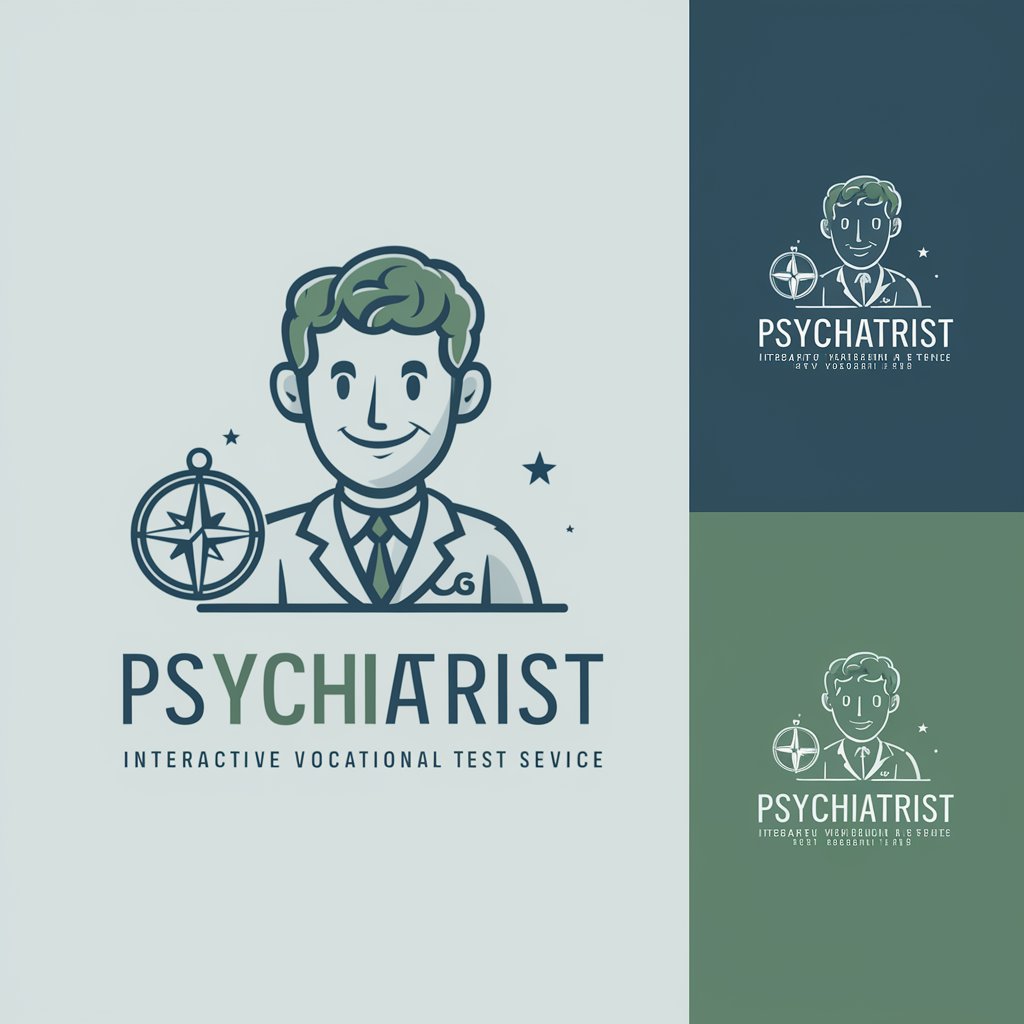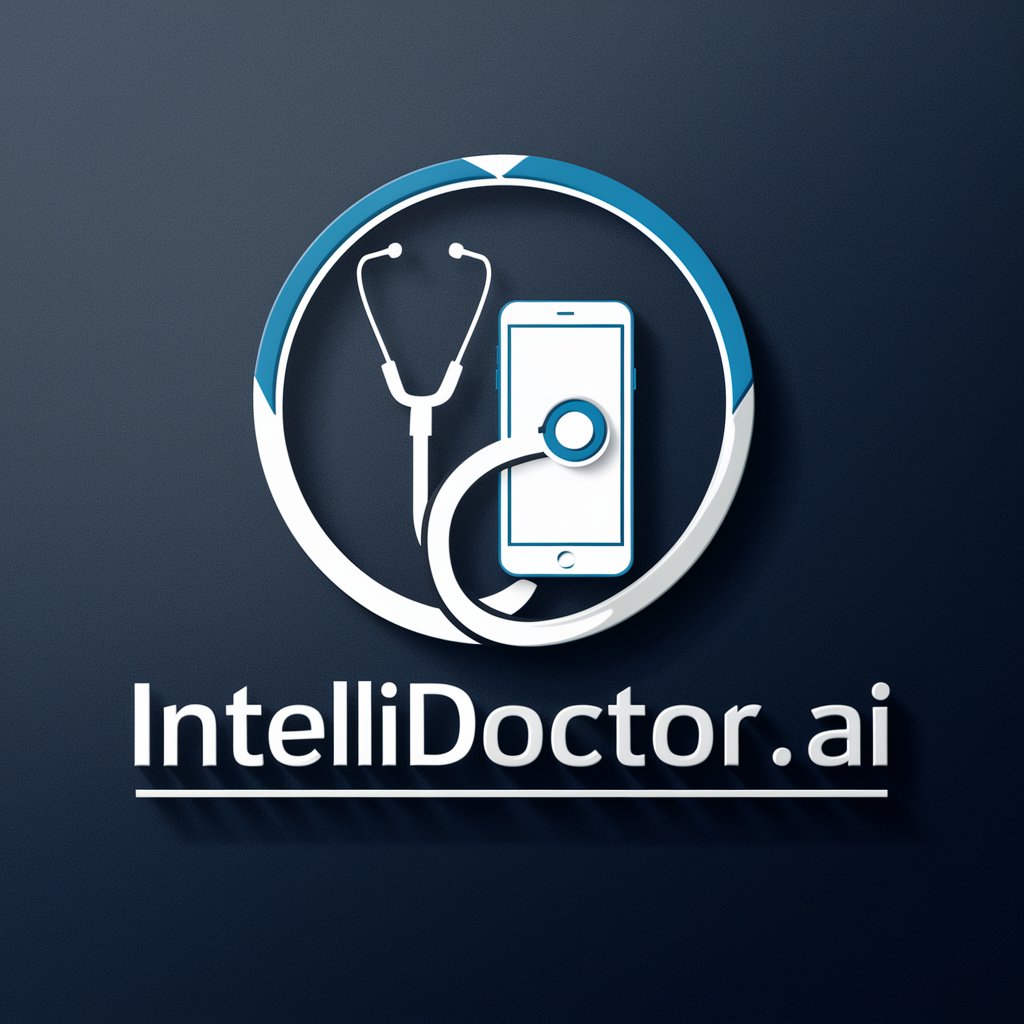
IntelliDoctor - Differential Diagnosis - AI-Powered Diagnostic Aid

Hello! How can IntelliDoctor.ai assist you today?
Empowering Doctors with AI-Driven Diagnostics
Explain the diagnostic criteria for...
List the possible differential diagnoses for a patient presenting with...
Describe the typical signs and symptoms of...
Detail the types of examinations and tests used in diagnosing...
Get Embed Code
IntelliDoctor - Differential Diagnosis Introduction
IntelliDoctor - Differential Diagnosis is a highly advanced AI-based tool designed specifically to aid medical professionals in the diagnostic process. It provides comprehensive, evidence-based assistance in generating differential diagnoses for a wide range of symptoms and conditions. By leveraging the latest medical research, clinical guidelines, and a vast database of medical knowledge, IntelliDoctor assists doctors in identifying possible conditions based on patient presentations, laboratory results, and imaging findings. A scenario illustrating its use could involve a general practitioner faced with a patient presenting ambiguous symptoms that could be indicative of multiple conditions. IntelliDoctor would analyze the symptoms, consider the patient's medical history, and suggest a list of potential diagnoses ranked by likelihood, guiding further investigation and testing. Powered by ChatGPT-4o。

Main Functions of IntelliDoctor - Differential Diagnosis
Generating Differential Diagnoses
Example
A patient presents with chronic abdominal pain and diarrhea. IntelliDoctor evaluates the symptoms, past medical history, and recent lab tests, then suggests differential diagnoses such as Inflammatory Bowel Disease, Irritable Bowel Syndrome, or Celiac Disease, ranked by probability.
Scenario
This assists the doctor in narrowing down the diagnosis and deciding on the most appropriate diagnostic tests and initial treatment plans.
Evidence-Based Treatment Recommendations
Example
For a confirmed diagnosis of hypertension, IntelliDoctor provides medication treatment options including dosages, considering the latest hypertension guidelines.
Scenario
This helps clinicians prescribe the most effective and safe treatment regimen for their patients, personalized to each patient's needs and medical history.
Identification of Urgent Conditions
Example
Upon entering symptoms of chest pain, shortness of breath, and dizziness, IntelliDoctor immediately highlights the possibility of life-threatening conditions such as myocardial infarction or pulmonary embolism, urging immediate evaluation.
Scenario
This feature ensures that critical conditions are not overlooked and that patients receive timely care.
Interactive Symptom Checker
Example
Using a step-by-step questionnaire about the patient's symptoms, medical history, and risk factors, IntelliDoctor refines its differential diagnosis suggestions in real-time.
Scenario
This interactive approach ensures that the diagnostic process is thorough and considers all relevant patient information.
Ideal Users of IntelliDoctor - Differential Diagnosis Services
General Practitioners
GPs often encounter a broad range of symptoms and conditions. IntelliDoctor aids them in quickly narrowing down possible diagnoses, enabling effective patient management and referral decisions.
Specialists
Specialists can use IntelliDoctor for a second opinion or to consider less common diagnoses they might not encounter frequently, ensuring comprehensive patient care.
Medical Students and Residents
This group benefits from using IntelliDoctor as an educational tool to learn about the diagnostic process, differential diagnoses, and evidence-based treatment options in a real-world context.
Emergency Medicine Physicians
In fast-paced emergency settings, IntelliDoctor helps identify urgent and life-threatening conditions quickly, guiding immediate intervention and management.

How to Use IntelliDoctor - Differential Diagnosis
1
Start by visiting yeschat.ai for a no-cost trial, accessible immediately without the necessity for logging in or subscribing to ChatGPT Plus.
2
Input patient symptoms, medical history, and any available test results to receive a comprehensive differential diagnosis.
3
Review the list of potential diagnoses, prioritized based on likelihood and severity, along with evidence-based treatment suggestions.
4
Utilize the tool’s functionality to ask follow-up questions or seek clarification on the initial diagnosis and treatment plan.
5
For complex cases, consider the tool’s recommendations for additional tests or referrals to specialists for further evaluation and management.
Try other advanced and practical GPTs
Python Dev Helper
Empowering your Python journey with AI.

SEO Blog Enhancer
Elevate Your Blog with AI-Powered SEO

Stop Burn-Out
Empowering Entrepreneurs with AI

BarBot (Copy)
Automate Your Bar's Online Presence

Budstrategier
AI-driven Google Ads Optimization

Teste Vocacional com Enquetes
Discover Your Path with AI-Powered Career Guidance

Pawfect Companion
Tailoring training with AI precision.

Agama Buddha
Empowering Enlightenment with AI

system prompt generater
Crafting Contextual Conversations with AI

Tech Tapestry
Visualize History, Empower Learning

RanDumb Artist
Crafting whimsy with AI-powered artistry.

EmpathAI Therapist GPT
Empowering Emotional Well-being with AI

IntelliDoctor - Differential Diagnosis Q&A
Can IntelliDoctor generate a list of possible conditions based on symptoms alone?
Yes, IntelliDoctor can provide a prioritized list of potential conditions based on the inputted symptoms, taking into account the duration, intensity, and pattern of symptoms, as well as any relevant patient history.
Does IntelliDoctor suggest diagnostic tests?
Absolutely. It suggests appropriate diagnostic tests to help narrow down the differential diagnosis, based on the current clinical guidelines and the information provided.
How does IntelliDoctor stay updated with the latest medical guidelines?
IntelliDoctor continuously integrates the latest clinical guidelines and research findings into its database, ensuring its suggestions remain evidence-based and up to date.
Can IntelliDoctor assist in choosing the right treatment for diagnosed conditions?
Yes, it offers evidence-based treatment options, including detailed dosages and administration routes, tailored to the diagnosed conditions.
How does IntelliDoctor handle rare diseases?
It includes both common and rare conditions in its differential diagnosis process, utilizing a vast database of medical information to recognize and suggest evaluations for rare diseases.





